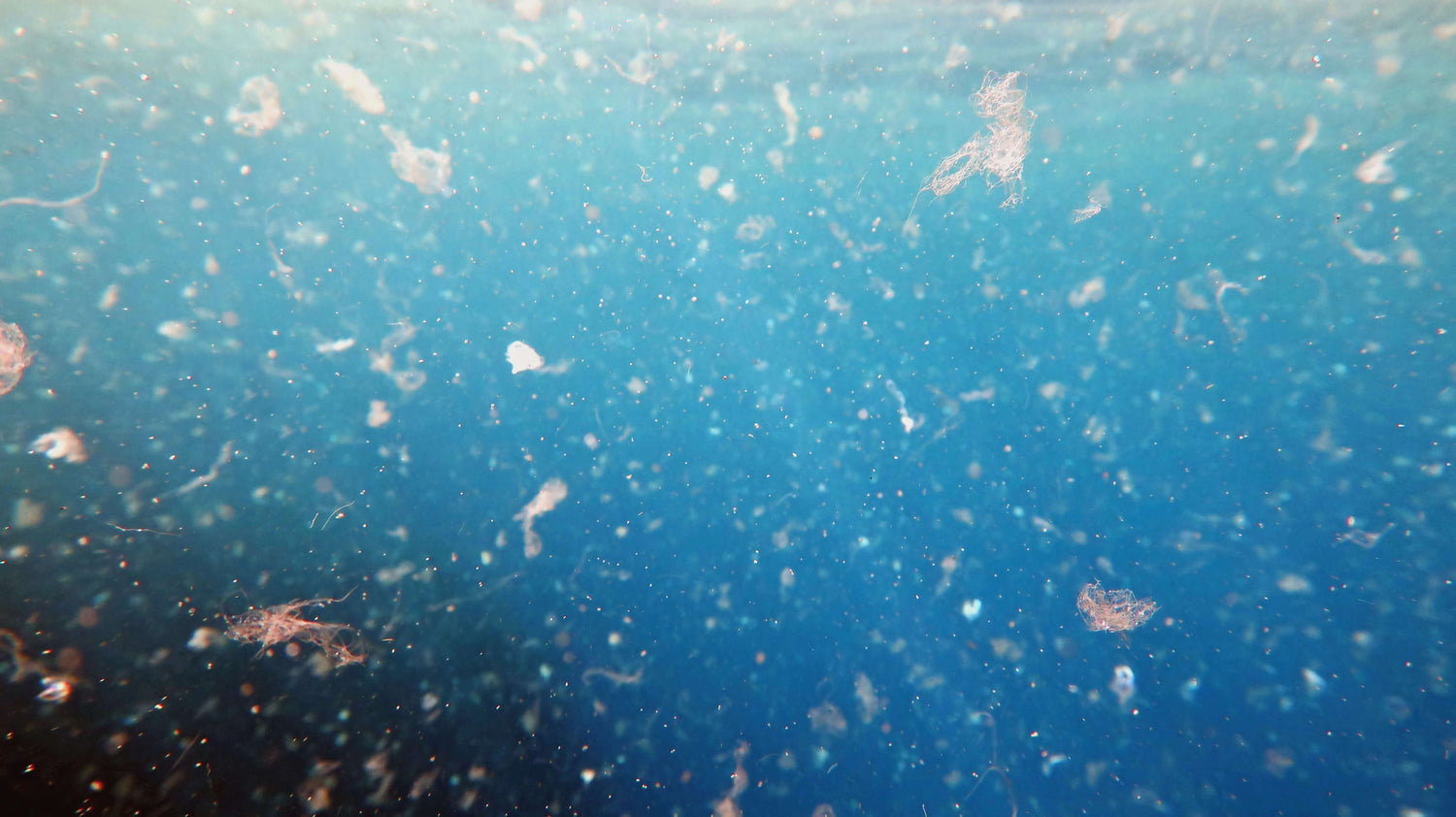
PVA is Microplastic
PVA is microplastic
Hey there, label reading moms! Today, I want to talk about something that may not be on your radar yet - PVA. PVA is a type of microplastic, and it's becoming increasingly prevalent in our environment. Here's what you need to know about PVA and why it's important to be aware of its presence. Thanks for reading!
PVA is a type of microplastic that can be found in many everyday products
Have you ever noticed those laundry pods or dishwasher pods when doing laundry or running the dishwasher? You might not have noticed that they contain tiny microplastics, like Polyvinyl Alcohol (PVA). PVA is most commonly used in laundry and dishwashing detergent products to keep laundry detergents from clumping and works as an anti-static agent in laundry. While it serves a beneficial purpose, these laundry pods are one of the main sources for PVA microplastics which can be found in many everyday items. Microplastics, such as PVA, are too small to be filtered by water treatment plants and can make their way into our waterways. It's important that we all be aware of how these microplastics impact our environment and strive to limit our consumption of them where possible.
PVA is harmful to the environment and can take centuries to break down
Polyvinyl acetate (PVA) has become increasingly popular in recent years due to its many benefits. Unfortunately, it is not biodegradable and remains a pollutant of concern. Of particular note is the fact that PVA takes centuries to break down in nature, meaning that even when used responsibly, it can linger in the environment for far too long. For this reason, it’s important to be aware of how PVA may enter our streams and rivers, potentially having an adverse effect on aquatic ecosystems. Additionally, we should take the necessary steps to reduce or replace the use of such materials wherever possible. By understanding the potential dangers that PVA poses to the environment—and taking action to mitigate them—we can all help protect our planet from further harm.
You can help reduce the amount of PVA in the environment by avoiding products using it
A big problem with microplastics is the use of polyvinyl alcohol (PVA) in many different products. It's important to be mindful about what we buy and consume; when you make a conscious choice to purchase PVA-free items, you can help reduce the amount of microplastic in the environment. Once microplastics enter down into our waterways and out into the ocean, they become a major source of environmental pollution. This can even cause microplastics to eventually enter our bloodstream! Be part of the solution and check product labels or look online for items that don't use PVA so that we can protect our environment — and ourselves.
PVA is also found in our food
We are surrounded by Polyvinyl Alcohol(PVA) in our daily lives, and oftentimes don’t even know, since it's a key ingredient in various industries. What many people may not realize is that PVA is also found in our food. PVA can act as a binder to enhance the consistency and texture of certain products such as beverages, soups and processed meats. The FDA doesn't care that you're eating microplastic; food-grade PVA has been accepted for use in contact with foods for decades and has informed people that it poses no health risks when added to humans' diets - making its presence almost unnoticeable! Yep, you heard that correctly. The FDA approves of microplastics in your food. Imagine that.
Help spread the word about the dangers of PVA and other microplastics to help protect our planet!
Microplastics are posing a big threat to life on our planet, but not enough people are aware of the dangers posed by PVA and other microplastics. These materials, which are often present in the products we use for everyday tasks such as washing dishes or clothes, get washed down the drains and into our rivers and oceans. This is immensely damaging to aquatic life, so it's up to us to boycott products that contain PVA or other microplastics and help spread the word about the threats they pose. Doing something as simple as telling your friends and family can have a huge impact - many hands make light work! We all need to take responsibility for protecting our planet, before it's too late.



Leave a comment